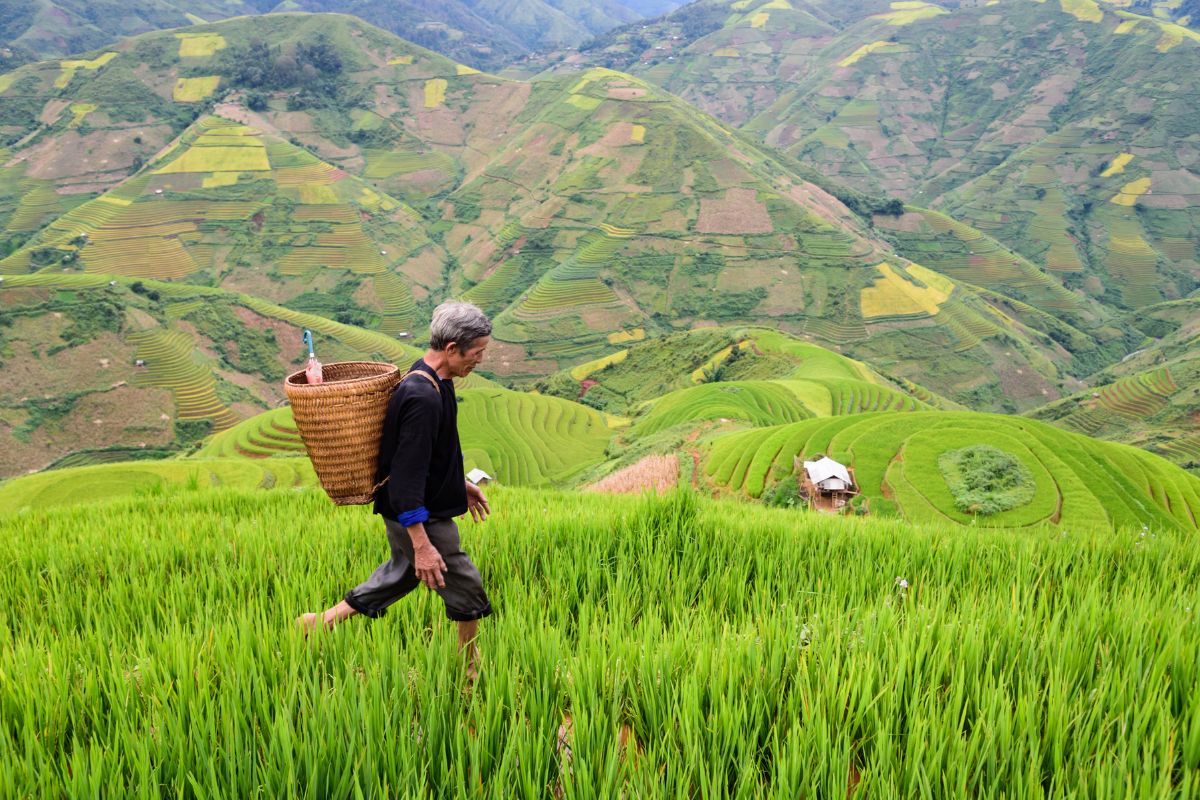US pauses aid to Ukraine, say reports
US President Donald Trump has paused all aid to Ukraine till as much time as it takes to determine President Volodymyr Zelensky's commitment to ending the war with Russia,
A joint statement led by the World Bank was issued recently to call for urgent action to address the global food security crisis.

Image surce (iStock)
China has taken effective measures to respond to global food security risks caused by the COVID-19 pandemic and geopolitical conflicts, officials with the Ministry of Agriculture and Rural Affairs said on Wednesday.
Zeng Yande, head of the ministry’s development and planning department, said the pandemic and geopolitical conflicts have affected global agricultural production and supply, and created prominent structural problems in the trading system.
Advertisement
“Some countries have adopted measures to restrict the export of grain and agricultural products, affecting regional and global food security,” Zeng said at a news conference focusing on the agricultural and rural economy in the first half of this year. A joint statement led by the World Bank was issued recently to call for urgent action to address the global food security crisis.
Advertisement
China has been increasing food production capacity to ensure food supply through building high-quality farmland and accelerating breeding innovation. “The per capita grain availability reached 483 kilograms last year, much higher than the global standard of food security. Based on domestic resources, China has solved the food problem of one-fifth of the world’s population, greatly contributing to global food security,” Zeng said.
Meanwhile, China is helping developing countries that are more vulnerable to the food crisis increase grain production and food security through projects including the China-FAO South-South Cooperation Programme. China is the biggest contributor in terms of donations and number of supportive experts, Zeng said.
China and the United States, both major countries in the agriculture sector, will seek technological cooperation and talent communication in the future to bring about more certainties to the global food system and the market of agricultural products, he added.
Liu Han, an official with the ministry’s department of market and informatization, said rising soybean and edible oil prices due to the tight supply of soybeans and limited export of sunflower oil made in Ukraine have resulted in high global oil prices.
As a result, domestic prices are also rising. Last month, the after-tax price of imported soybeans in Shandong province rose to 5.5 yuan (81 cents) per kilogram, a year-on-year increase of 14.7 percent. Bean oil and rapeseed oil prices also increased by 30 percent, Liu said.
“However, the domestic edible oil supply is ensured and has seen a smaller price rise than in the global market thanks to the country’s abundant oil storage and increasing rapeseed production,” she said.
Zeng said there has been a remarkable expansion of soybean and oil-producing crops, with this year’s rapeseed yield hitting a record high, and total production volumes undergoing the biggest increase in six years. Meanwhile, there are now more than 1 million hectares of combined corn and soybean crops, and soybean cultivation is expected to increase greatly.
The summer grain harvest came in at 147.4 million metric tons, a rise of 1.4 million tons from last year, with wheat production at 135.7 million tons, up 1 percent year-on-year. The ministry expects the area of early rice crops to increase steadily, and more than 60 percent has already been harvested, Zeng said.
Liu Lihua, deputy director of the ministry’s plantation management department, said China can also expect a bumper harvest of autumn grain, which accounts for about 75 percent of the annual grain output. The planting area is expected to increase and the growth in Northeast China, which produces one-third of the nation’s autumn grain, is better than normal years because of plentiful rainfall and good soil moisture, Liu said.
However, rural and agricultural economic development still faces challenges, such as the increasing threat of natural disasters, Zeng said. Farmers are encountering greater pressure when it comes to increasing employment and incomes, and the growth rate of agricultural and rural investment is slowing.
Advertisement